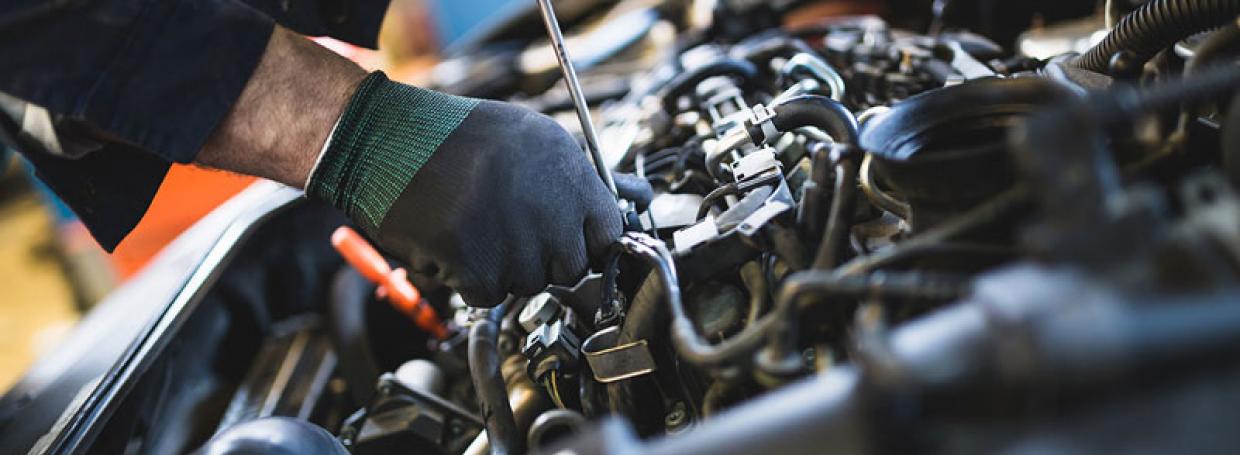How to know when your car workshop is fleecing you

Living in one of the world’s most expensive places to own a car, it’s no big surprise that we Singaporeans tend to take extremely good care of our vehicles. As the years go by, drivers tend to develop a preference for a certain car workshop, and even get to know and trust the mechanics.
But for new drivers or those who have moved to a different, farther part of the city, the search for a trustworthy workshop may be paved with occasional deceit.
For some car owners who are only familiar with driving the vehicle but not the makeup of the vehicle itself, the trip to the workshop can be daunting with technical terms thrown around and not knowing if you are getting your money’s worth for the work done. Some workshops may then decide to take advantage of this fact and trick you into paying more for lower service quality or a smaller scope of repairs. So how do you know when your car workshop may be fleecing you?
Telltale signs that your car workshop is taking you for a ride

1. The mechanic suggests additional fixes that sound urgent but are really unnecessary
It may seem like your mechanic is looking out for you and going the extra mile to point out a fault that you hadn’t noticed, but be wary.
Suggesting additional, unrelated changes—especially those that are suddenly ‘urgent’—might simply be a pressure sales tactic to get you to pay for unnecessary services. Larry Hecker, president of the Motorist Assurance Program, says one should “be especially concerned if the shop makes every recommendation sound like an emergency.”
For instance, if you came in for an oil change and your mechanic tells you: “Oh, by the way, there’s also something problematic under the hood,” feel free to probe further—but cautiously. In such situations, insist that you only get the change that you came for, or get a second opinion. Otherwise, you might end up paying a whole lot more than you intended.
2. The mechanic doesn’t show you evidence of old parts
Taking it a step further, if your mechanic reveals a new side mirror and claims the original one was cracked or broken without actually showing it to you, alarm bells should start ringing. It’s possible that your car part was perfectly fine—but without proof, how will you confirm it? The worst part is that now you’ll have to fork out cash for something you didn’t ask for.
3. They take their own sweet time
In most cases, you can trust that your workshop has the necessary tools and resources to repair your car. They’ll also have estimated costs and timeframes for repair, maintenance, and modification services.
If you’ve done some homework, you’ll be able to gauge the time needed for your procedure to be complete, so it’s not recommended to tell your mechanic to take as much time as he pleases. Doing so might lead to overcharging for additional hours, leading a fix that should only take two hours to spill over into two days.
How you can protect yourself from fleecing

1. Take the time to get acquainted with your car
Arm yourself with basic knowledge of your car’s parts, especially the areas where you need repairs. You can do this by reading the dealer’s manual. Scour the Internet to learn from other people’s experiences what to expect for a particular type of fix.
If you come across as knowing your stuff, it’s less likely that the workshop will try to pull a fast one on you.
2. Get ballpark prices
Common repair and maintenance services are quite standard—oil change and tire rotation are less extensive and more routine procedures compared to those concerning engine and transmission. These are also the types of services that earn a profit for the workshop.
Knowing the price of car parts will also help you to manage your expectations and avoid paying for an overpriced part. Some commonly overcharged repair jobs are related to car brakes, windshield wipers, battery, headlight bulbs and belts.
Find out the ballpark numbers for the prices of services and parts from others who have experienced similar car procedures or by simply calling multiple workshops to compare prices.
3. Communicate clearly
Communication is key. Ultimately, you’ll want to be able to explain your car’s situation without sounding totally clueless or trapping yourself into a procedure that costs more than it should.
Here are some basic guidelines on communicating well with your mechanic:

1. Provide a comprehensive explanation of your problem directly to the mechanic handling your repair works, if possible. If the problems have persisted for a while, share the ‘whens’ and ‘hows’. Also be specific if you require a particular aspect of your car to be inspected as the mechanic probably won’t be checking every single part.
2. Don’t self-diagnose. You’ll want to guide your mechanic in understanding your situation but leave the technical advice to the experts. Also, it’s safe to say giving the mechanic freedom to do as he sees fit is probably not a good idea.
3. Let your mechanic know that any procedures above and beyond what was discussed and agreed upon must first be approved by yourself. Additional parts may also come with warranties, so ask about those, too.
Finding a car workshop you can trust
Once you’ve found a workshop and mechanic that you can trust, you can build that relationship and have lower chances of getting fleeced. Going to a workshop that’s authorised by your car insurance company will also ensure you’re protected, as that means the workshop most likely has a good track record.


